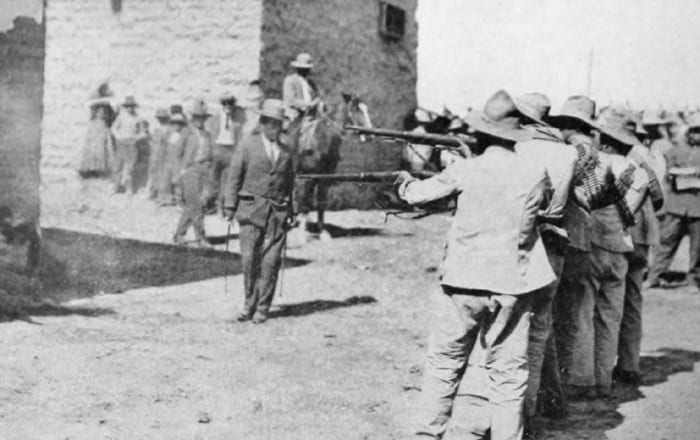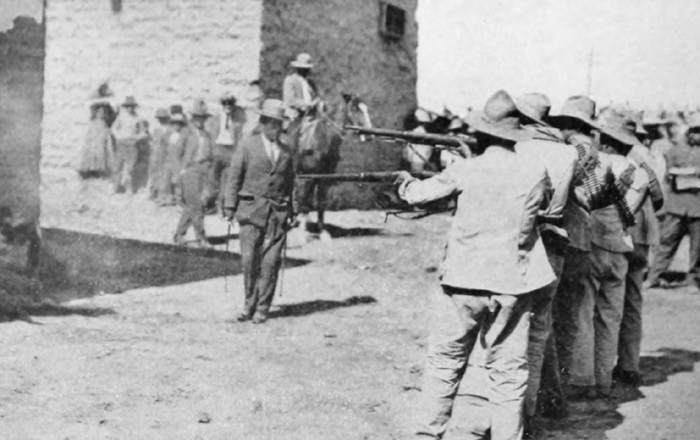
by Marcos Camargo
After passing the Utah House of Representatives by a 39-34-2 vote, the Utah Senate passed HB11 by a vote of 18-10-1 on Tuesday, March 10. If signed by Gov. Herbert, HB11 will authorize Utah to use the firing squad as a secondary form of execution if the state is unable to obtain the drugs used in lethal injection. While Washington County Senator Stephen Urquhart voted in favor of the bill, southern Utah representatives were split on the issue.
On Feb. 13, 2015, Rep. Paul Ray (R-Clearfield), the bill’s sponsor, argued that the debate over HB11 should not focus on the death penalty itself but rather on appropriate execution alternatives should the state ever face shortages in supply of lethal injection drugs.
“This bill, first of all, is not a debate about whether or not to have the death penalty,” said Ray. “The state of Utah has adopted a death penalty, and in doing so we have to have a means in which to carry it out.”
Not anticipating a shortage in supply of the chemicals used in lethal injection, in 2004 Utah lawmakers removed the firing squad as a lawful method of execution in the state.
“Back in 2004, we had no idea that at some point in time we would not have the drug cocktail available to carry out the death penalty,” Ray continued. “So under this bill lethal injection remains the primary source [of execution] … Now why is this important? Well because we’ve had other states—Oklahoma, Arizona, Ohio—that have mixed their own chemical compounds and have had botched executions.”
Ray made no arguments against or in favor of the death penalty, instead focusing on the importance of having a second legally-approved method of execution in addition to lethal injection.
Rep. Sandra Hollins (D-Salt Lake) spoke against HB11. She said that she couldn’t vote for something that gave a tool to the state to carry out the death penalty.
“In 1987, nearly thirty years ago, the Supreme Court recognized there is racial disparity in the death penalty,” said Hollins. “The death penalty is… not fairly given across socio-economic status, race, or gender lines. It is fraught with errors.”
Rep. Brian King (D-Salt Lake) also opposed the bill, directly addressing the death penalty in his statement against HB11. Arguing for fiscal responsibility, King said, “We heard the bill’s sponsor talk about cost, about money, for a fiscally responsible state, this is a fiscally irresponsible decision … It costs nearly twice as much to prosecute a death penalty case than a life in prison case. Even if you take out all the costs of post conviction proceedings, the death penalty is still more expensive than life in prison.”
Despite this opposition, Ray and his supporters prevailed when the house voted to pass the bill 39-34-2. Of the southern Utah representatives, three voted in favor of the bill and two were opposed. Representatives Don Ipson, Brad Last, and John Westwood voted to pass HB11, but Representatives Lowry Snow and Jon Stanard opposed it.
After the passage of HB11 in the House, the bill then moved to the Senate where it passed with little debate during its third reading on March 10.
The bill’s Senate floor sponsor, David Hinkins, made a short introduction. “This bill will prevent the state [from spending] millions of dollars that would be squandered on a legal fight for the right of Utah to carry out and enforce its laws.”
Sen. Gene Davis (D-Salt Lake) was the only senator to make a statement of opposition to the bill during Tuesday’s debate.
“I realize that this bill does not accomplish what many of us believe should happen—to do away with the death penalty,” Davis said. “This does not do that. This only puts another alternative on the table … Due to the fact that this does not do away with the death penalty but only brings it a different way of execution to the state of Utah, I vote no.”
HB11 now goes to Gov. Herbert for final approval. The Independent attempted to contact Sen. Urquhart and southern Utah House representatives, but they were unavailable for comment.




